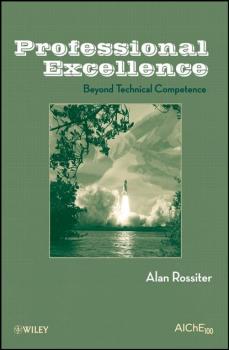Группа авторов
Список книг автора Группа авторовBusiness Orchestration
Digital convergence is redefining industries, and putting information, knowledge and collaboration at the heart of strategic leadership and management. In the face of such change it is those leaders who can ‘orchestrate’ a complex network of employees, customers and suppliers in a single ongoing learning experience that will succeed. Exploring four learning roles for customers (information acquirer; explorer; performer; inventor) and orchestrators (conductor; architect; auctioneer; promoter), Business Orchestration provides a strategic view of how to harness digital convergence by mobilizing and integrating the resources of other companies to create business value.
Mergers & Acquisitions
This book was designed not only for owners and managers of middle market businesses but as a training text for middle market M&A investment bankers and consultants. It discusses the art and science of middle market M&A as well the all-important psychology and behind-the-scenes negotiations pursued with a particular emphasis on obtaining the absolute highest value when selling a business. Subjects addressed include valuation, taxation, negotiations, M&A conventions, among many others from the buy-side and sell-side perspectives. Subtitled “Tales of A Deal Junkie,” this serious but occasionally irreverent book tells it like it is, including anecdotes to provide a “feel” for what really goes on in middle market transactions. The author, a former practicing CPA and a business valuation expert, is a veteran M&A investment banker with years of real life experience. He also is a widely-acclaimed instructor in the M&A field and a nationally-respected practitioner who has trained thousands of investment bankers. No comparable book on the market today provides this degree of comprehensive and invaluable insight.
Professional Excellence
The training path for engineers focuses intensely on scientific and technical knowledge. Yet, our professional and personal satisfaction and success also depend on other traits that make us more effective and productive. In this thought-provoking book, Alan Rossiter provides practical guidance in developing the skills to become more effective in your work, while also balancing your life. It is invaluable reading for graduating college students and young professionals as well as seasoned practitioners who find that work is becoming all-consuming.
Modern Banking
Modern Banking focuses on the theory and practice of banking, and its prospects in the new millennium. The book is written for courses in banking and finance at Masters/MBA level, or undergraduate degrees specialising in this area. Bank practitioners wishing to deepen and broaden their understanding of banking issues may also be attracted to this book. While they often have exceptional and detailed knowledge of the areas they have worked in, busy bankers may be all too unaware of the key broader issues. Consider the fundamental questions: What is unique about a bank? and What differentiates it from other financial institutions? Answering these questions begins to show how banks should evolve and adapt – or fail. If bankers know the underlying reasons for why profitable banks exist, it will help them to devise strategies for sustained growth. Modern Banking concludes with a set of case studies that give practical insight into the key issues covered in the book: The core banking functions Different types of banks and diversification of bank activities Risk management: issues and techniques Global regulation: Basel 1 and Basel 2. Bank regulation in the UK, US, EU, and Japan Banking in emerging markets Bank failure and financial crises Competitive issues, from cost efficiency to mergers and acquisitions Case Studies including: Goldman Sachs, Bankers Trust/Deutsche Bank, Sumitomo Mitsui, Bancomer
Operational Review
Shows in a step-by-step manner how an operational review should be conducted. Demonstrates the differences between an operational and financial audit. Details how to identify which organizational systems are detrimental to a corporation's growth. Shows how to judge the results and make recommendations to management. Provides blank and sample forms required for conducting a comprehensive operational review.
Internal Audit
Internal Audit: Efficiency Through Automation teaches state-of-the-art computer-aided audit techniques, with practical guidelines on how to get much needed data, overcome organizational roadblocks, build data analysis skills, as well as address Continuous Auditing issues. Chapter 1 CAATTs History, Chapter 2 Audit Technology, Chapter 3 Continuous Auditing, Chapter 4 CAATTs Benefits and Opportunities, Chapter 5 CAATTs for Broader Scoped Audits, Chapter 6 Data Access and Testing, Chapter 7 Developing CAATT Capabilities, Chapter 8 Challenges for Audit,
Healthcare Fraud
According to private and public estimates, approximately $24 million is lost per hour to healthcare waste, fraud, and abuse. A must-have reference for auditors, fraud investigators, and healthcare managers, Healthcare Fraud: Auditing and Detection Guide provides tips and techniques to help you spot—and prevent—the «red flags» of fraudulent activity within your organization. Eminently readable, it is your “go-to” resource, equipping you with the necessary skills to look for and deal with potential fraudulent situations.
Internal Controls
In the new age of philanthropy, donors expect charities to be models of accountability and transparency…Internal controls: Guidance for Private, Government, and Nonprofit Entities is a must read for CEOs and CFOs who want to gain a clear understanding of cost-effective ways to implement the controls necessary to protect their organizations. – Elizabeth Myatt, Chief Executive Officer, World Lung Foundation "If you were looking for the silver bullet to understand and audit internal controls, you just found it. This book will prove invaluable in planning the audit internal controls, you just found it. This book will prove invaluable in planning the audit because it specifically covers COSO and the new AICPA risk assessment auditing standards. " – George I. Victor, CPA, Partner in Charge of Quality Control, Holtz Rubenstein Reminick LLP «Author Lyn Graham gives practical, easy-to-understand guidance for documenting internal controls. I recommend this book for both my clients and our staff. It is very useful for auditors and clients alike.» – David E. Adams, CPA, Partner, Geffen Mesher & Company «This book is an essential guide…and provides very practical advice about what to do(and what not to do) in making an investment in internal controls. The author's expensive experience as an audit firm partner and standard-setter are evident in the details provided. I also recommend this book to teaches of auditing and systems, as it provides a useful background to…how internal controls really should work in today's business environment.» – Jean C. Bedard, CPA, PhD, Timothy B. Harbert Professor of Accountancy, Bentley College
Fraud Casebook
Praise for Fraud Casebook Lessons from the Bad Side of Business «I have known Mr. Wells for over twenty years. In my opinion, no one in the world knows more about fraud than he does.» -W. Steve Albrecht, Associate Dean, Marriott School of ManagementBrigham Young University, Provo, Utah «This book covers the entire range of fraud that can be encountered in the workplace.» -Grant D. Ashley, Vice President for Corporate Security and SurveillanceHarrah's Entertainment Inc., Las Vegas, Nevada «I had the pleasure of serving with Mr. Wells when both of us were volunteers for the American Institute of Certified Public Accountants. He knows as much as anyone about how to detect and deter fraud.» -James G. Castellano, Chairman, RubinBrown LLP, St. Louis, Missouri «I have worked with Mr. Wells for ten years. His reputation is unsurpassed.» -John F. Morrow, Vice President, The New FinanceAmerican Institute of Certified Public Accountants, New York, New York «Fraud Casebook is a terrific work. I highly recommend it.» -Sherron S. Watkins, a Time magazine «Person of the Year,» Houston, Texas «No one has done more for fraud prevention and detection than Mr. Wells and the Association of Certified Fraud Examiners. Their guidance and training proved invaluable to my staff and me in uncovering the WorldCom fraud.» -Cynthia Cooper, a Time magazine «Person of the Year,» Clinton, Mississippi
Inventory Accounting
Dramatically improve inventory accuracy with bestselling author Steven Bragg's step-by-step guidelines Inventory Accounting is a comprehensive, step-by-step guide to setting up an inventory accounting system and keeping it running at maximum efficiency. This hands-on book provides accounting professionals with essential information on how to: * Set up an accounting system that efficiently handles accumulating inventory costs, summarizing accounts, and standard journal entries used to record transactions * Use best practices to increase the efficiency of inventory-tracking and costing functions * Install unique controls to combat inventory fraud * Implement a step-by-step checklist of activities for inventory counting procedures * Save hours of valuable time researching various GAAP reference manuals * Adapt inventory tracking and costing systems to accommodate a variety of manufacturing systems Spanning the entire spectrum of inventory accounting, Inventory Accounting deftly explores every facet of the field to help professionals eliminate inaccuracies from their inventory accounting systems.









